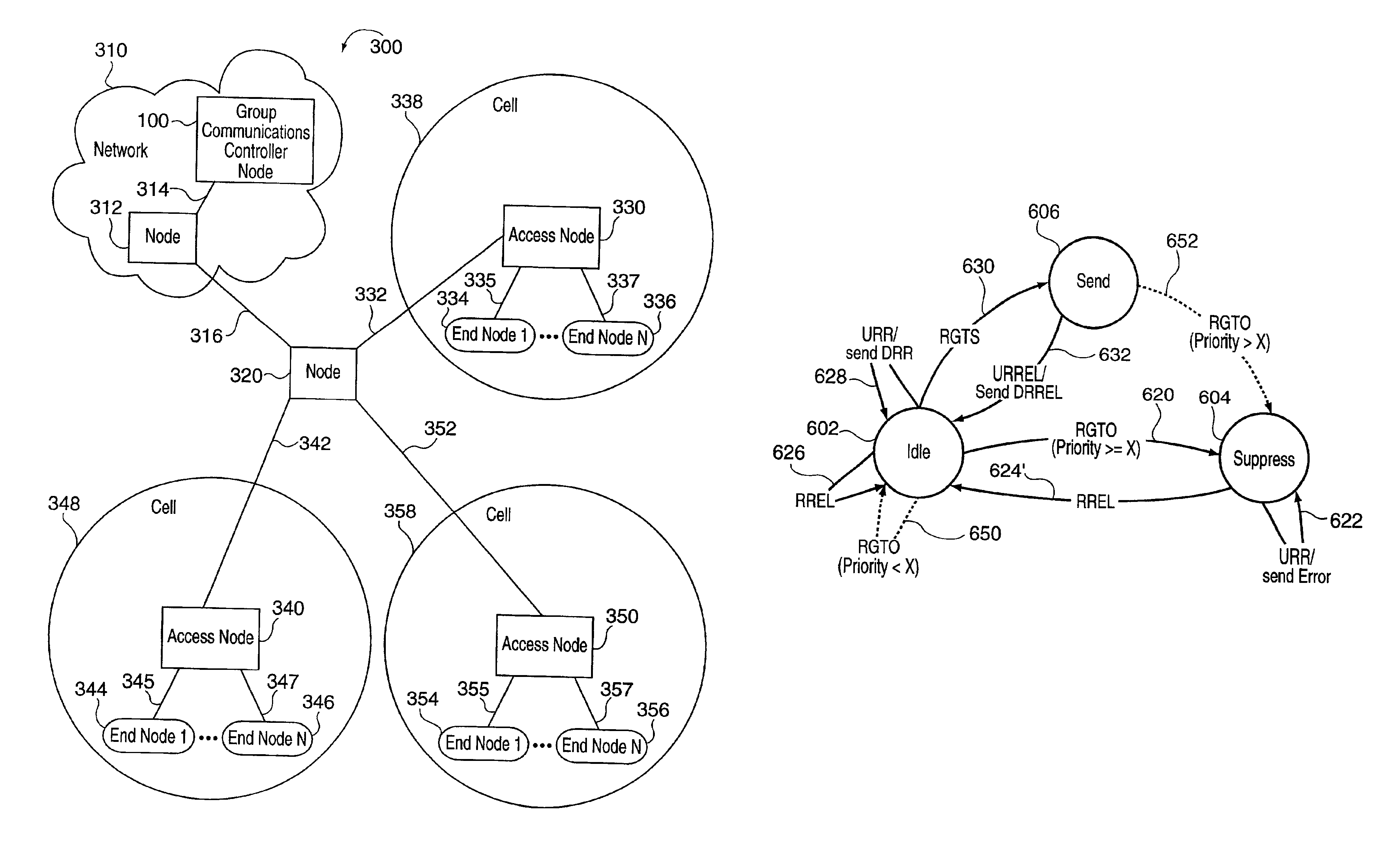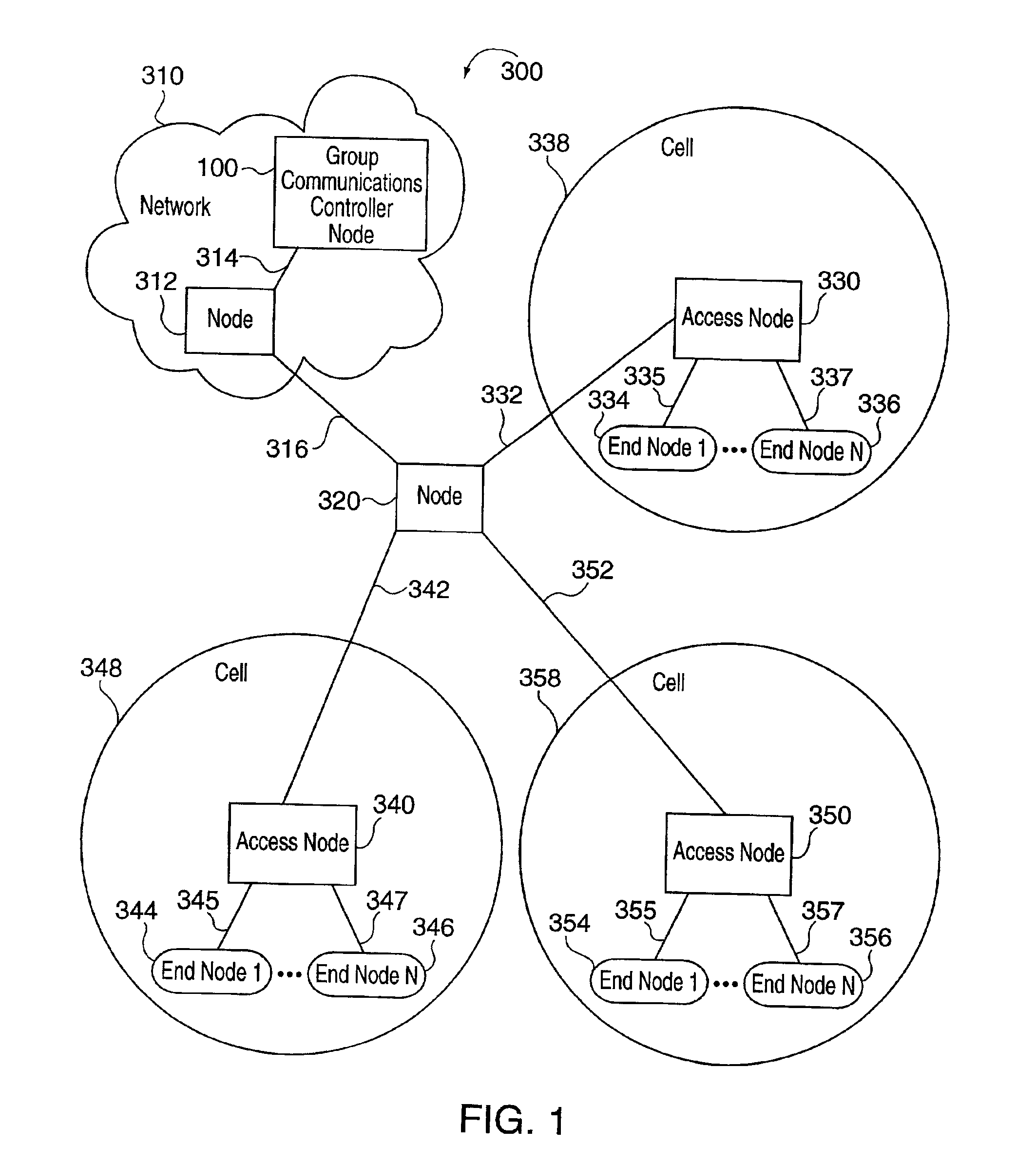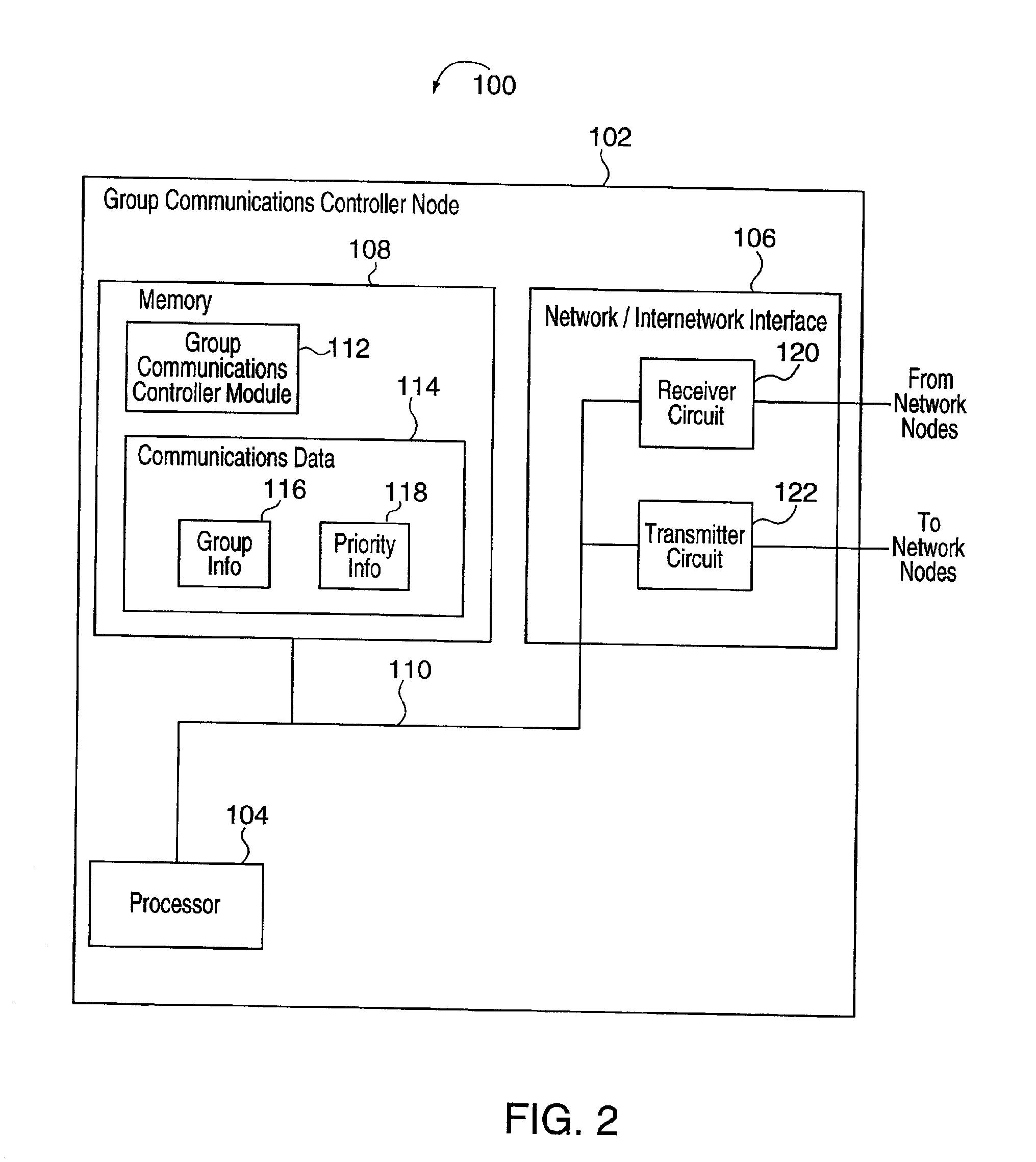Methods and apparatus for supporting group communications
a group communication and communication method technology, applied in the field of group communication methods and apparatus, can solve the problems of increasing overhead, system resources may also be consumed for signaling, and the device may remain in the same mode for a longer period of time, so as to minimize user interaction, minimize delay, and reduce overhead
- Summary
- Abstract
- Description
- Claims
- Application Information
AI Technical Summary
Benefits of technology
Problems solved by technology
Method used
Image
Examples
Embodiment Construction
[0020]FIG. 1 illustrates an exemplary system 300 in which a plurality of end nodes 334, 336, 344, 346, 354, 356, implemented in accordance with the present invention, can participate in group communication sessions coordinated by a group communications control node 100, also implemented in accordance with the present invention. Each end node 334, 336, 344, 346, 354, 356 may be a member of one or more communication groups and is capable of initiating a group communication session for the communication groups of which it is a member. The group communications controller node 100 is responsible for floor control between members of each group that are participating in a group communication session. The group communications controller node 100 may also manage access to other communication resources as with a group communication session, e.g., network resources available to a given group communications session.
[0021]The FIG. 1 exemplary system 300 depicts a network 310 that includes the gr...
PUM
 Login to View More
Login to View More Abstract
Description
Claims
Application Information
 Login to View More
Login to View More - R&D
- Intellectual Property
- Life Sciences
- Materials
- Tech Scout
- Unparalleled Data Quality
- Higher Quality Content
- 60% Fewer Hallucinations
Browse by: Latest US Patents, China's latest patents, Technical Efficacy Thesaurus, Application Domain, Technology Topic, Popular Technical Reports.
© 2025 PatSnap. All rights reserved.Legal|Privacy policy|Modern Slavery Act Transparency Statement|Sitemap|About US| Contact US: help@patsnap.com



